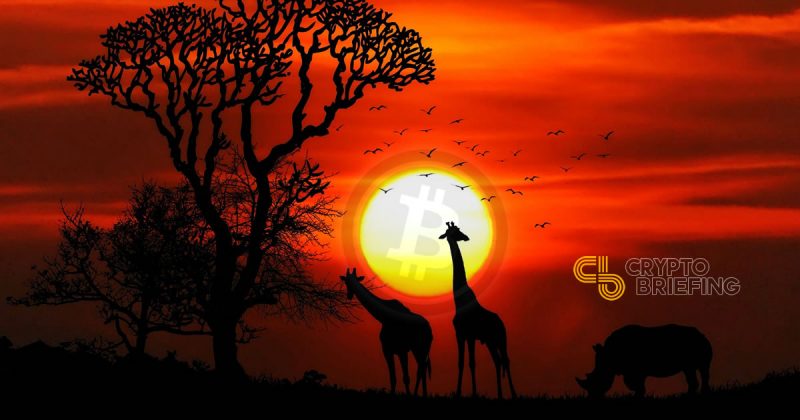
Bitcoin Application Beats Speculation In Africa
Paxful, the international Bitcoin marketplace, reported last week $40,000,000 of monthly transactions in Africa alone. CEO Ray Youssef spoke of the opportunities cryptocurrency can offer people who are unable to engage in commerce because of a lack of banking infrastructure.
Paxful, the international Bitcoin marketplace, reported last week $40,000,000 of monthly transactions in Africa alone.
In a blog post entitled “Building Wakanda” CEO Ray Youssef spoke of the opportunities cryptocurrency can offer people who are unable to engage in commerce because of a lack of infrastructure.
In Nigeria and Ghana, (Paxful’s 2nd and 3rd largest markets) Bitcoin is enabling investment, enhancing commerce capabilities, and restoring purchasing power by letting locals bypass bank restrictions.
In sharp contrast to the trading and speculation of the West, growing adoption in Africa seems to be fulfilling Satoshi’s original vision for financial empowerment. The African cryptocurrency markets are providing a much needed service to an unbanked or underbanked population, allowing them to circumvent banks and take control of their own funds.
Ray wrote on Medium “we have many customers from Nigeria who will add $1,000 of bitcoin to their Paxful wallets and then sell it to someone in exchange for $1,200 added to their Alipay account. This enables them to buy the iPhone from AliExpress using Alipay funds. Domestic blockade bypassed!”
The financial landscape looks very different on the African continent, and the number one means for buying crypto is through iTunes gift cards. The Paxful exchange offers hundreds of methods for buying and selling Bitcoin, but it is the only p2p crypto marketplace that deals with iTunes gift cards, despite logistical difficulties.
Along with online shopping, some “unbanked” and “underbanked” West Africans are also using mobile crypto wallets to store funds in places lacking adequate banking facilities. Bitcoin may be seen to offer some relative stability, as the continent is renowned for a volatile foreign exchange market, with Nigeria’s naira (NGN) and Zambia’s kwacha (ZMK) experiencing swings of up to 40% over the past few years.
Bitcoin can offer an independent store of value that is not subject to local economic turmoil, and so has historically traded at higher prices in the nations of Zimbabwe, South Africa, and Nigeria – which is Paxfuls second biggest market.
Lack of a liquidity has pushed prices through the roof, with buyers paying as much as 100% markup on BTC during the uncertainty over Mugabe in Zimbabwe last year.
Paxful is one of the first exchanges to move into this rapidly expanding industry, and focuses on serving underbanked people in emerging markets. The team also engage in humanitarian activity, and they have built a host of schools and nurseries in Rwanda, promoted under the hashtag #builtwithbitcoin.
On the national stage, gold castings of the hands of South Africa’s first black President, Nelson Mandela, changed hands for $10 million in Bitcoin; a symbolic reminder of an escape from political oppression. Whether this p2p financial revolution will have the same effect for the people of Africa remains to be seen.
